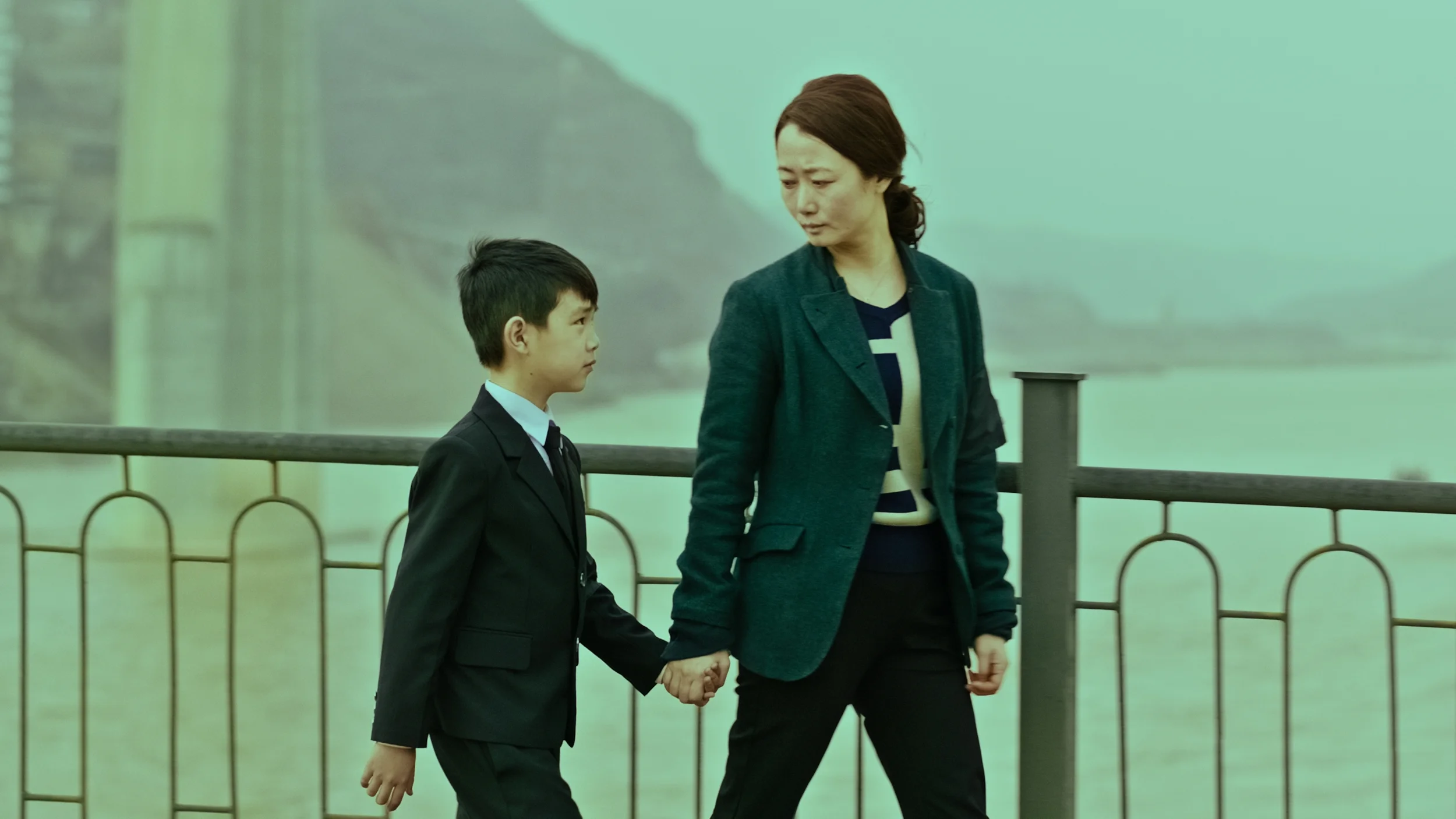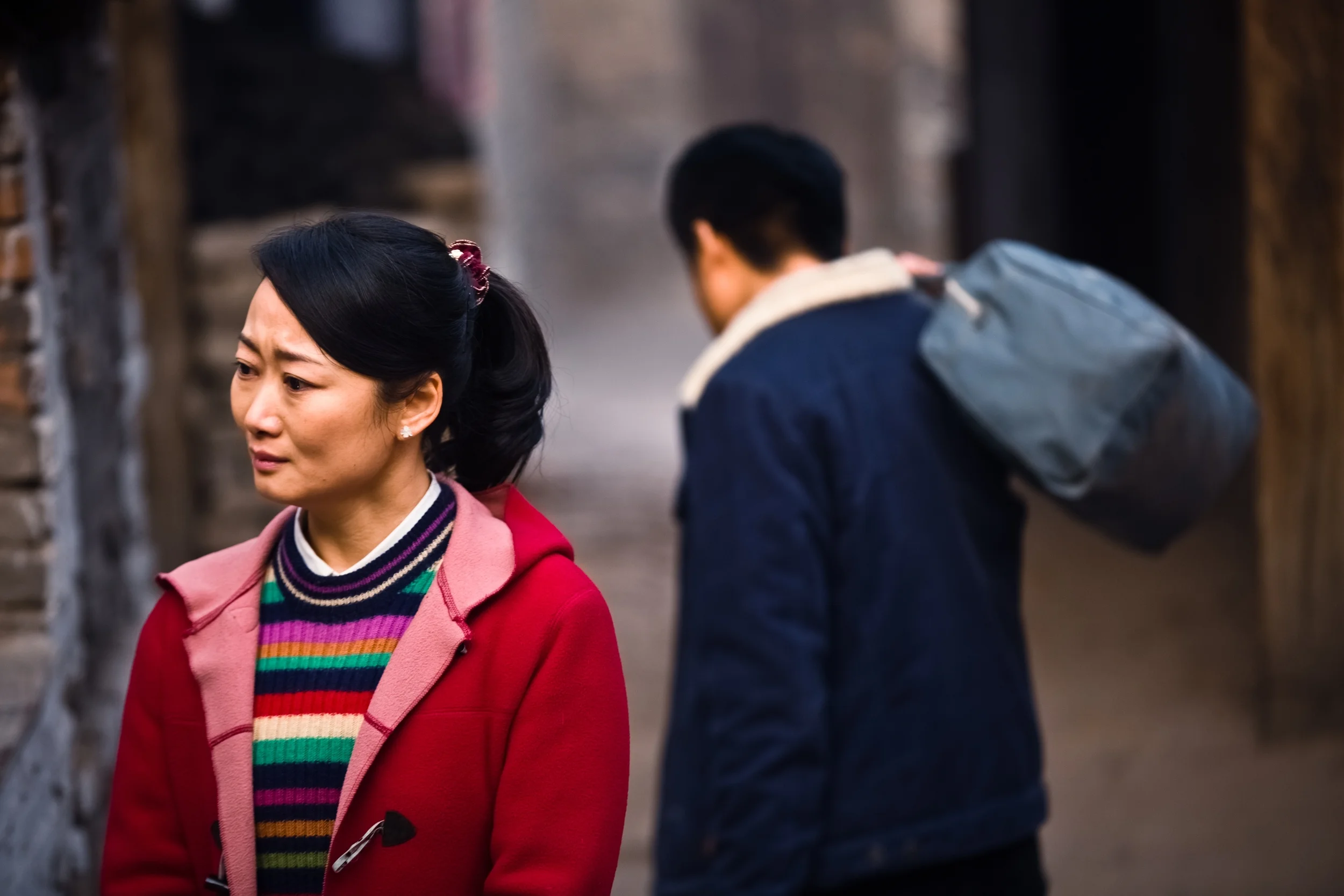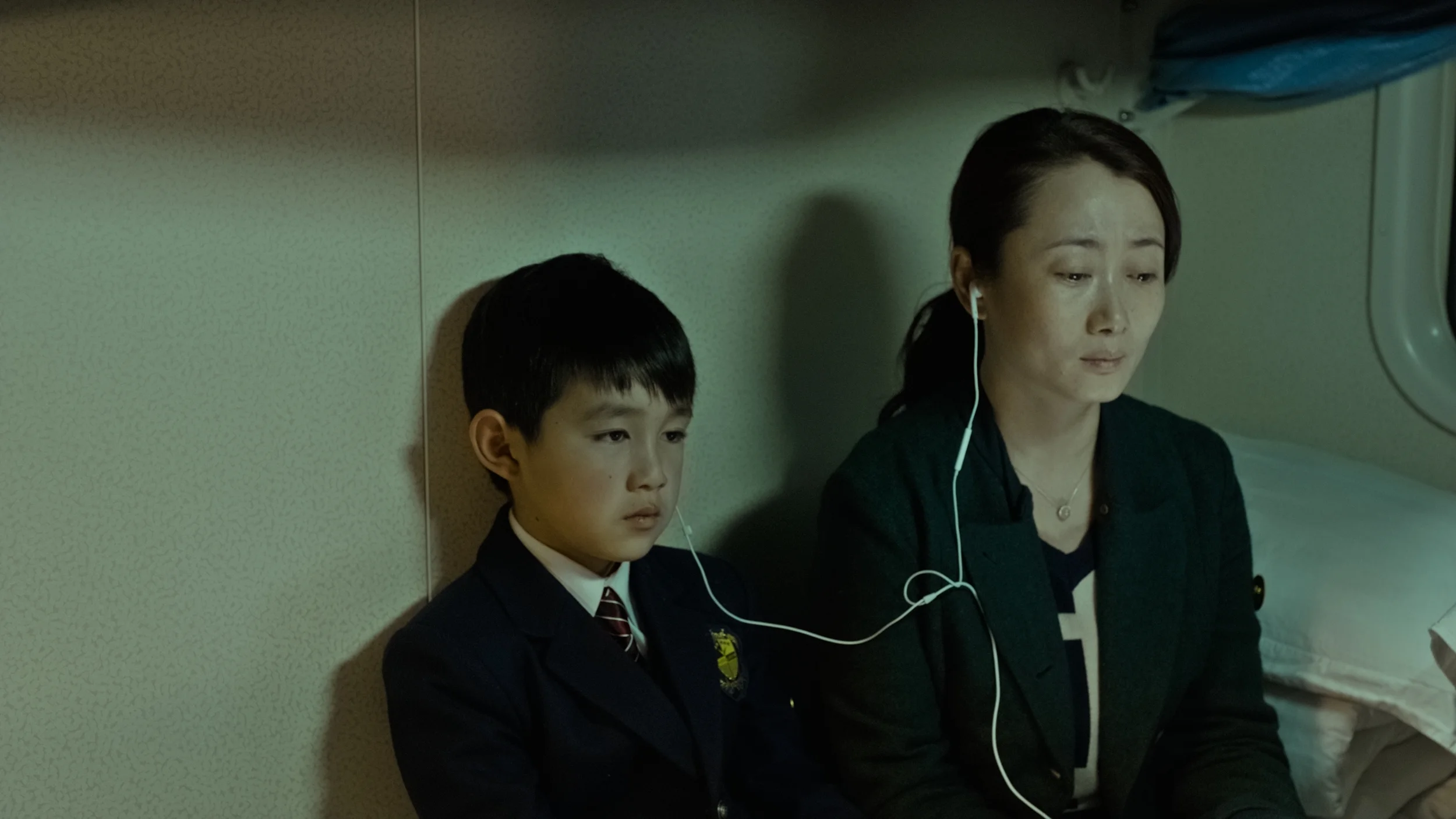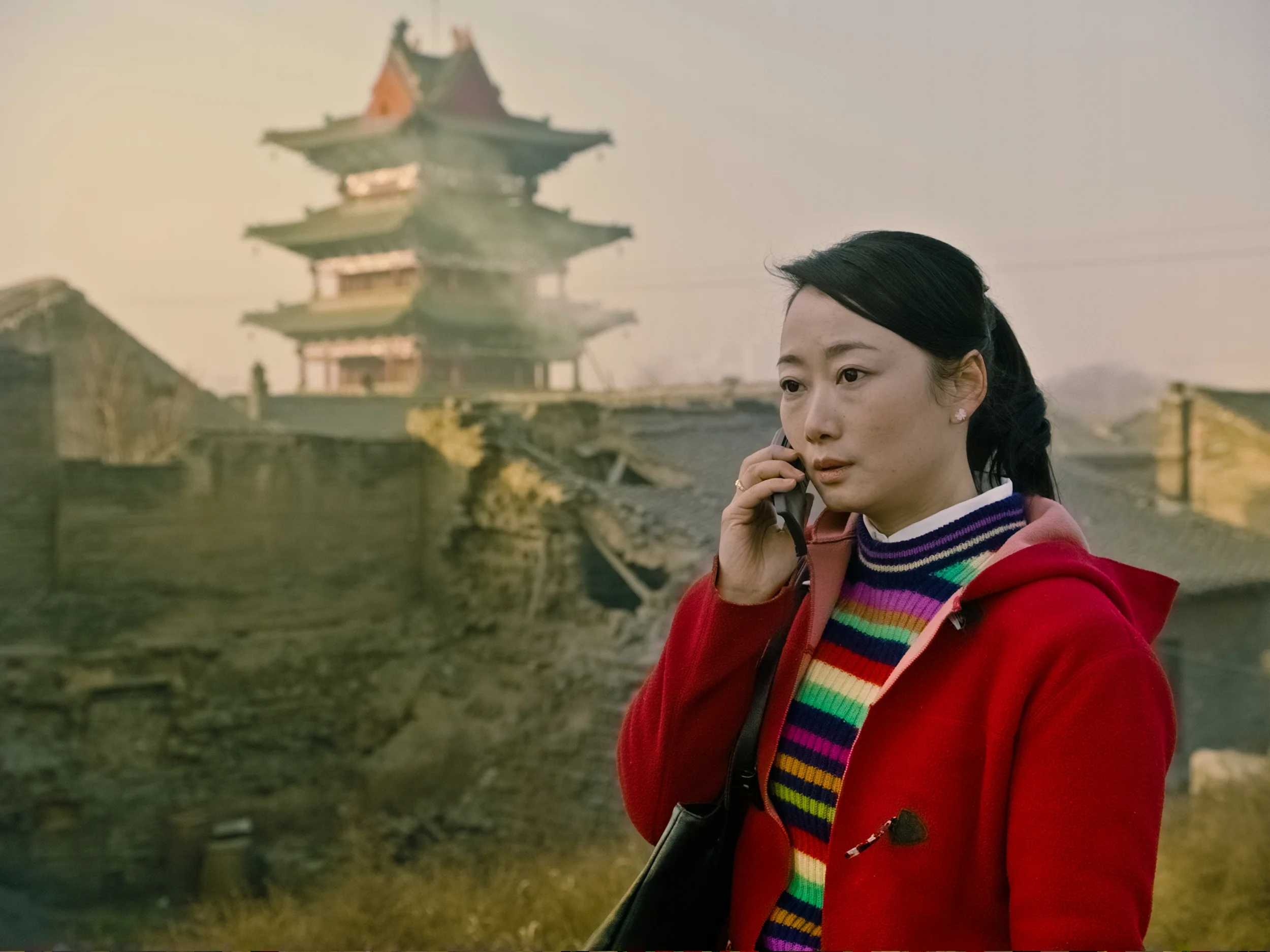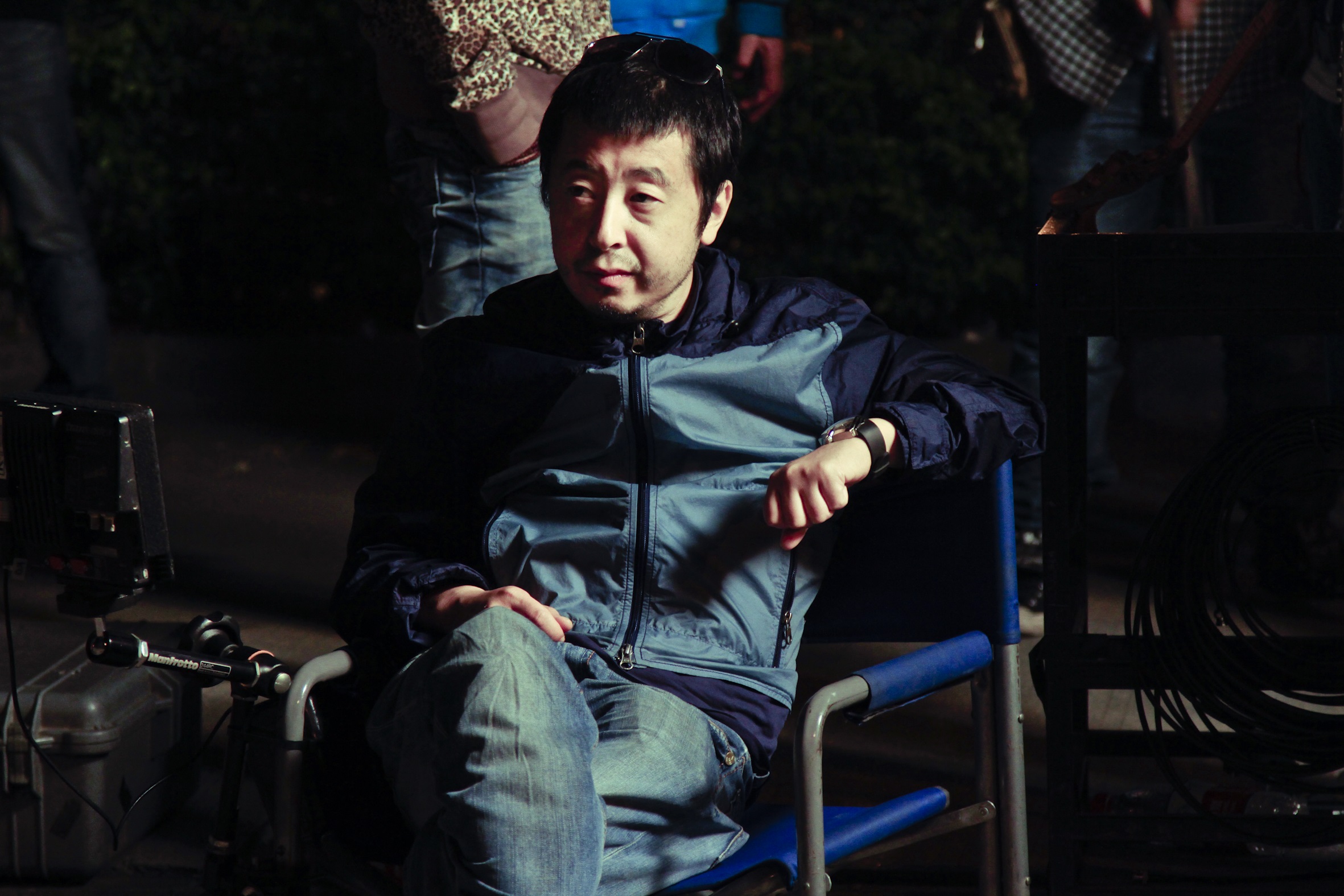CHINA - JAPAN - FRANCE – 125 MIN – COLOR – 1.33 / 1.85 / 2.39 – 5.1 – 2015
A FILM BY JIA ZHANGKE
China, 1999. In Fenyang, childhood friends Liangzi, a coal miner, and Zhang, the owner of a gas station, are both in love with Tao, the town beauty. Tao eventually marries the wealthier Zhang and they have a son he names Dollar.
2014. Tao is divorced and her son emigrates to Australia with his business magnate father.
Australia, 2025. 19-year-old Dollar no longer speaks Chinese and can barely communicate with his now bankrupt father. All that he remembers of his mother is her name..
NNNN - "And as with most of Jia's work, the movie functions simultaneously as a commentary on China's capitalistic frenzy and as a thoughtful, empathetic study of a family trying to find their way while the world convulses around them."
- NOW Magazine
3.5 Stars! "Jia Zhang-ke’s intimate film is as big as China itself"
- Globe and Mail
"as daring and moving as contemporary art house cinema gets"
- Torontoist
"the compelling performances and themes related to a shifting Chinese culture should give audiences much to think about."
- Toronto Film Scene
Director Jia Zhang-Ke on poverty, air pollution and what happens when people leave china (Interview)
- NOW Magazine
"I have complete artistic freedom when it comes to making them. But then afterwards I have to do everything I can to show them in China. And if that’s not possible, then that’s not possible."
- Globe and Mail (Feature)
An Interview with Jia Zhang-Ke
- Mao Yan Movies
"By this point, Jia Zhangke is practically synonymous with the Toronto International Film Festival. Since his visionary 1997 debut feature Xiao Wu, TIFF has screened each of the Chinese director’s works, and earlier this year presented a retrospective of his incendiary filmography. This year, Zhangke is doing triple duty: He’ll be presenting his latest film, Mountains May Depart; sitting on the festival’s inaugural Platform jury; and promoting his new book, Jia Zhangke Speaks Out, available in English for the first time. Here, in an exclusive excerpt to The Globe and Mail, Zhangke recalls meeting his idol, Martin Scorsese."
- Globe and Mail
"Mountains May Depart isn't the first film Jia has made that criticizes Chinese society. in the 90s, he emerged as the outlaw hero of the country's film culture, producing a series of independently financed, street-level masterpieces—including the epic drama Platform (2000)—that were deemed un-releasable by the country's censors for a variety of reasons, not least of all their despairing imagery of social and economic inequality. Mountains"
- Vice
Toronto International Film Festival - "Mountains May Depart" Photo Call
- Getty Images
"Jia displays remarkable ease exploring a rich emotional landscape while simultaneously commenting on larger societal issues. The unresolved ending turns out to be unexpectedly poignant, the mark of a master filmmaker."
- NOW Magazine
"Jia’s social commentary remains sharp"
- Toronto Star
"Jia’s epic of the negative impact of China’s capitalism on the Chinese individual comes across loud and clear. MOUNTAINS MAY DEPART is an important film that emphasizes a point that is already too clear and one that has affected too many."
- Afro Toronto



